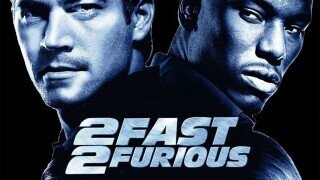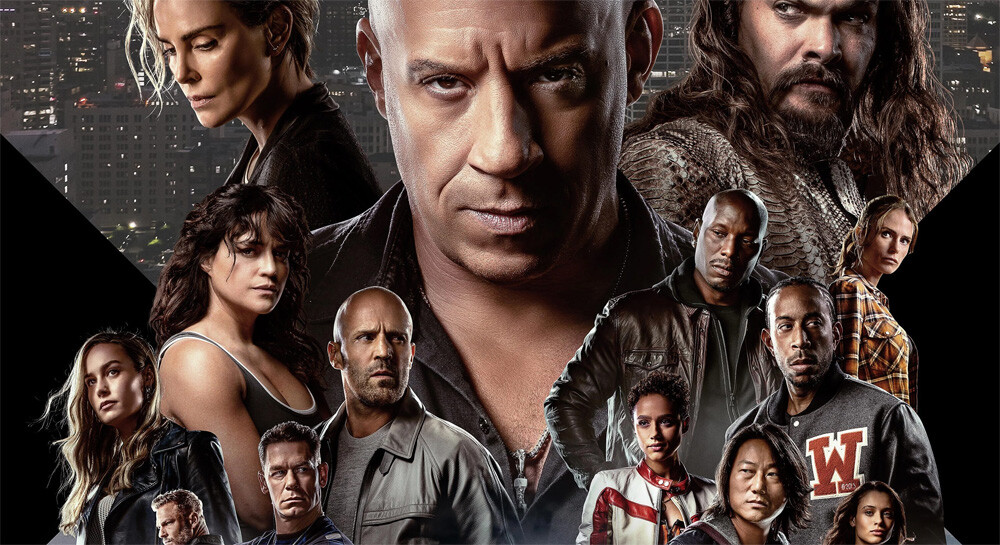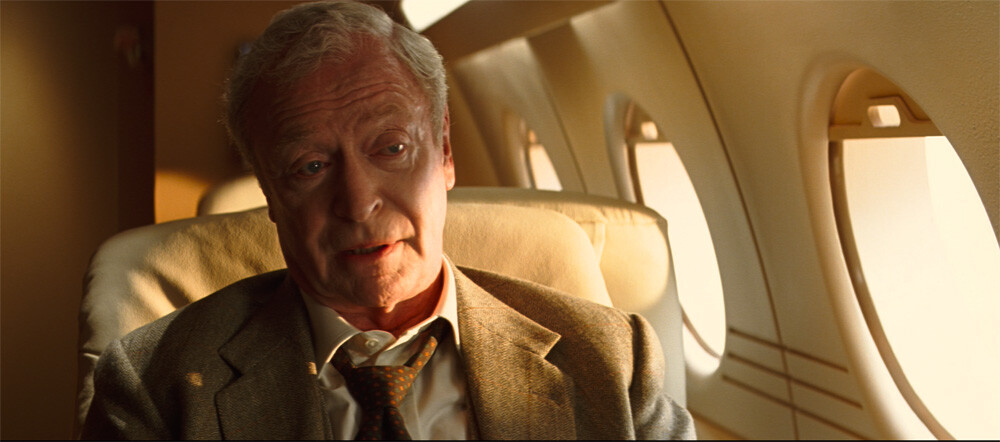4 Iconic Pop-Culture Names We Got Stuck With Because Someone Sued

An artist picks their name carefully because all their later success depends on it. It’s why Ozzy Osbourne’s cronies called themselves Black Sabbath instead of The Polka Tulk Blues Band and why we got a move called Field of Dreams rather than its proposed title, Shoeless Joe.
Some names, however, weren’t creative choices at all. They were straight-up legal necessities.
‘Fast and Furious’ Sequels Are Named So Weirdly Because They Legally Have to Be
Don't Miss
When the sequel to 2001’s The Fast and the Furious was named 2 Fast 2 Furious, we marveled at the title’s stupid brilliance. The sequel after that was framed as a spin-off, the one after that was bafflingly called Fast & Furious, and the series continued, for decades, with no two sequels using the same numbering format. At some point, titling the films became a joke that we were all in on.

Universal Pictures
The 18th movie will be Fas-Ten-8-ing.
It didn’t start out that way. 2 Fast 2 Furious got its name because the studio lacked the rights to the title The Fast and the Furious 2. Before the 2001 racing and crime movie by Universal Pictures, The Fast and the Furious had been the title of a 1955 racing and crime movie by Roger Corman. Universal didn’t remake the Corman pic — the original was about a fugitive who enters a race to escape to Mexico — but they did buy the rights to make a movie with the same title.
But according to Corman, Universal did not buy the rights to numbered sequels using that exact title. Corman, now 97, retains the exclusive right to produce a movie called The Fast and the Furious 2, which would be a sequel to his own film. With the usual sequel route closed, the Furious franchise chose a weird sequel name instead, and then a bunch of other ones after that.
Had they not grabbed the Corman title, they might have used the title of the magazine article that inspired the series. The article was titled “Racer X.” We can only imagine what they would have named the 10th entry in that series.
Prince Switched to a Symbol to Break Off an Obligation to Warner Bros.
Before the Fast movies, we had a similar joke about the many names used by singer Prince. “First he called himself Prince,” people said, “then it was the Artist Formerly Known As Prince, then he just called himself the Artist, then it was some weird symbol. Ha, ha! What a nut.” This joke was made by people with no memory of how the name change really went down.
Prince never changed his name to “The Artist Formerly Known as Prince.” Prince was his professional name (as well as his legal name, as he was born Prince Nelson), and in 1993, he switched to that symbol, dubbed “the love symbol,” a mixture of the icons for Mars and Venus:
No one could pronounce the symbol, and publications could not easily reproduce it. So, the media on their own accord took to calling him “the artist formerly known as Prince,” for want of any easier way of describing him. This later became “the Artist.”
The reason he adopted that symbol was he wanted to create a separate entity from the Prince who was stuck in legal contract with Warner Bros. In 1993, he had around 500 songs that he wanted to pump out. Warner sanely wanted to space his albums out a bit, so each would sell, rather than opening the floodgates and giving the public more than they could handle. Prince, meanwhile, wanted to release everything he had. The emancipation stunt did not in fact result in him freely releasing his entire vault of music at once, but once the contract with Warner expired in 2000, his protest was done, and he returned to the name “Prince.”
People don’t remember any of these details. Similarly, years from now, people recalling old news reports will probably be convinced a company named X briefly officially changed their name to The Website Formerly Known As Twitter.
Notorious B.I.G. Was Notorious B.I.G. Because He Couldn’t Keep Being Biggie Smalls
Christopher Wallace chose “Biggie” as his rap name because — we hope you’re sitting down for this — he was physically big. A friend of his, Robert Cagle, came up with the idea of extending the name into “Biggie Smalls.” Cagle and Wallace were watching a movie together, a Bill Cosby movie titled Let’s Do It Again. Cosby wants to make a bunch of money, so he turns to hypnosis, and while you might have some theories on how the real-life Cosby would use this power to Do It Again, the movie ends up being about fixing boxing matches. One character in the movie is named Biggie Smalls.
That Biggie Smalls is a gangster, a bookie. Naturally, Cagle had to comment on the connection between that guy’s name and his own friend “Biggie” Wallace. Wallace accepted the upgrade to his rap name, and his friends called him Biggie Smalls after this.
For a while, that went fine. He used “Biggie Smalls” professionally. Then, before his first full album, the name’s copycat nature caught up with him. Some sources say he was sued by Calvin Lockhart, the actor who’d played the bookie in that movie. Biggie himself cited a different issue: The legal conflict arose because another rapper was using the same name. If you grab your name from pop culture, there’s always the risk someone else will do the same thing and will beat you to it.
So, who exactly was this rival rapper who faced off against the Notorious B.I.G. and won? We have a recording of his right here:
Yeah, Biggy Smallz was Tim Bigelow, a 12-year-old white kid. We don’t imagine Tim would beat B.I.G. in a rap battle, but he’d triumph in a courtroom. Tim had released three songs, and in 1992, Christopher Wallace had recorded a demo but had yet to officially release anything. So, Wallace relinquished the name. After this, he called himself Notorious B.I.G., which he said had always been one of the names he’d used for himself anyway. Informally, people would sometimes continue calling him Biggie Smalls.
Nice that this was solved amicably. Though, neither Biggie nor Biggy got happy endings. Wallace was murdered in 1997 of course, and Bigelow was gunned down as well, in 1994.
Tupac Shakur would go on to posthumously release a song called “God Bless the Dead,” which begins with the line “Rest in peace to my motherfucker Biggy Smallz.” Given that Tupac was murdered a year before B.I.G., this line baffled listeners. You could interpret it as a threat, but the rest of the song isn’t a threat at all. In reality, Tupac wasn’t singing about B.I.G. here. He was singing about his friend Biggy Smallz, Tim Bigelow.
Michael Caine Adopted that Name to Avoid Airport Security Friction
Michael Caine has a very straightforward name. It’s also a useful guide to talking like him: You just pronounce Michael Caine “my cocaine” and then find yourself naturally adopting his voice. His birth name, however, was Maurice Micklewhite. Today, we might make Maurice Micklewhite a star because we’re cool, but when his career began, back in the 1950s, it was prudent to adopt a stage name.
He legally changed his name from Maurice Micklewhite to Michael Caine. He did this in 2016.
Oh, he started calling himself “Michael Caine” as early as 1954, inspired by The Caine Mutiny. But he only officially changed his name a few years ago, because he was tired of going to the airport and suffering through exchanges like this:
Sir Michael: All right, here’s my passport, and the pilot should have shown you the itinerary already.
Agent: Oh my god. You’re Michael Caine!
Sir Michael: That’s right. A bit of a fan, are you?
Agent: I loved you in Gambit!
Sir Michael: Haven’t heard anyone mention that one in a while. But let’s move this along, shall we? The plane’s waiting.
Agent: Of course, of course. Let me just look at your papers, and... hold on. This passport is issued to Maurice Micklewhite?

Warner Bros.
Oh no. Not this shit again.
Sir Michael: That’s my name, as a matter of fact.
Agent: No, you’re Michael Caine.
Sir Michael: Yes, but my legal name is Maurice Micklewhite. That’s just how it is.
Agent: You’re not Maurice Micklewhite. You’re Michael Caine. I know you.
Sir Michael: If you know who I am, you could bloody just let me through then, couldn’t you?
Agent: I’m sorry. If I think you’re using fraudulent documents, I can’t ignore that. I’d lose my job. I might even get arrested. You know, what with ISIS and all.
Sir Michael: I stopped flying commercial precisely so I could avoid this rigamarole.
Agent: Even private planes have to go through passport control and customs, I’m afraid.
Sir Michael: Fine. I’m going to fix this. And from now on, it’s just going to be Michael Caine.
Agent: Oh, that’s another red flag, sorry. If I think you’re smuggling drugs, I have to detain you.
Follow Ryan Menezes on Twitter for more stuff no one should see.